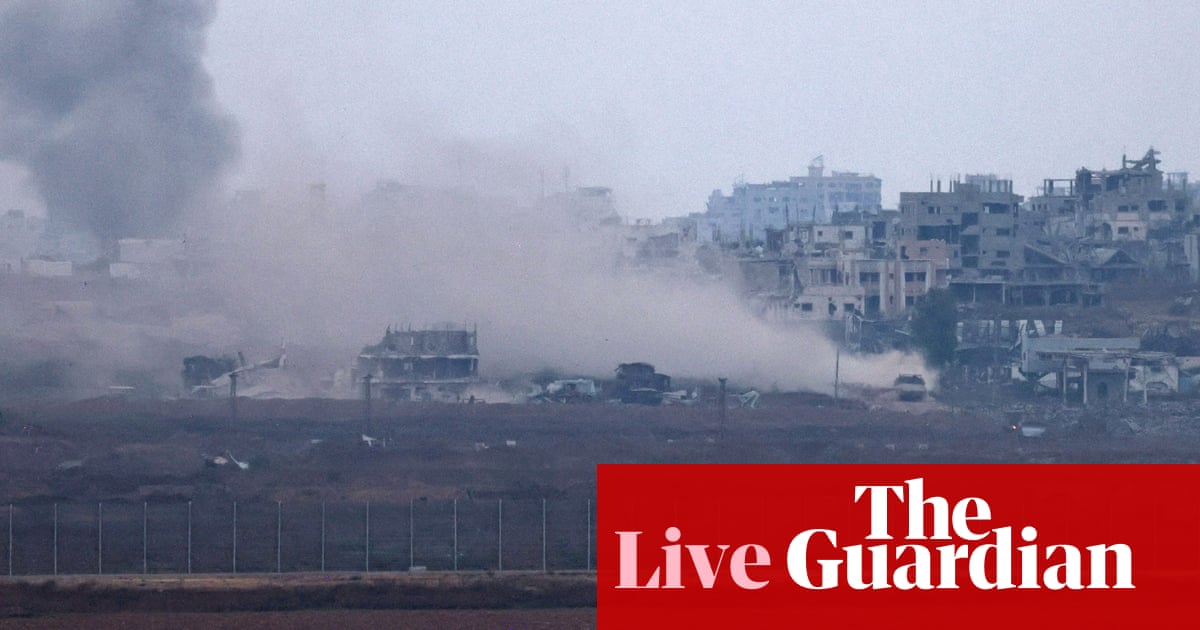Israelimilitary strikes killed at least 35Palestiniansin theGaza Stripon Wednesday, most of them at an aid site operated by theUS-backedGaza Humanitarian Foundation (GHF)in central Gaza, local health officials said.
Medical officials atal-Shifa and al-Quds hospitalssaid at least 25 people were killed as they approached the aid site nearNetzarim, and dozens were injured, reports Reuters.
Ten other people were killed in other Israeli military strikes inKhan Younisin the south of the territory, medical officials added.
The Israeli military had no immediate comment, according to Reuters.
On Tuesday, when Gaza health officials said17 people were killed near another GHF aid site inRafahin southern Gaza, the army said it fired warning shots to distance “suspects” who were approaching the troops and posed a threat.
Israeli prime ministerBenjamin Netanyahusaid on Tuesday there had been “significant progress” in efforts to secure the release of the remaining hostages inGaza, but that it was “too soon” to raise hopes that a deal would be reached.
Despite efforts by the United States,Egypt, andQatarto restore a ceasefire in Gaza, neither Israel norHamashas shown willingness to back down on core demands, with each side blaming the other for the failure to reach a deal.
Two Hamas sources told Reuters they did not know about any new ceasefire offers.
Here is a summary of other developments:
Hamas has killed 50 fighters in recent months from a Palestinian gang armed byIsraelin Gaza, according to a statement released amid reports that Israeli troops directly intervened this week to protect the faction.According to media reports in Israel, clashes between Hamas fighters and members of a militia led byYasser abu Shabab, known locally for his involvement in criminal activity, erupted early on Tuesday in Rafah.
Australia has joined the UK, Canada, New Zealand and Norway in placing financial sanctions and travel bans on two Israeli government ministers, over whatPenny Wongdescribed as “inciting violence against Palestinians in the West Bank”.The Magnitsky-style sanctions on Israel’s national security minister, Itamar Ben-Gvir, and the finance minister, Bezalel Smotrich, were in response to serious human rights violations and abuses against Palestinians in the West Bank, including Israeli settlements considered illegal under international law, the governments said in a joint statement.
The US has condemned the UK’s decision to sanction two Ben-Gvir and Smotrich over “egregious abuses” of human rights in Gaza.Donald Trump’s secretary of state Marco Rubio said that the travel ban and asset freeze imposed on the two Israeli ministers “do not advance US-led efforts to achieve a ceasefire” and called for the measures to be reversed. The US also decried Australia’s decision to sanction Ben-Gvir and Smotrich.
Israel deported activist Greta Thunberg on Tuesday, a day after the Gaza-bound ship she was on was seized by the Israeli military.Speaking upon arrival in Paris en route to her home country of Sweden, Thunberg called for the release of the other activists who were detained on the Madleen. She described a “quite chaotic and uncertain” situation during the detention.
Israel’s navy attacked docks in Yemen’s rebel-held port city of Hodeida on Tuesday, launching its first seaborne assault against the Iranian-backed Houthi rebels while warning more could come.The attack on Hodeida likely damaged facilities that are key to aid shipments, but also have allegedly been used for weapons smuggling as vessels reportedly bypass United Nations inspectors.
